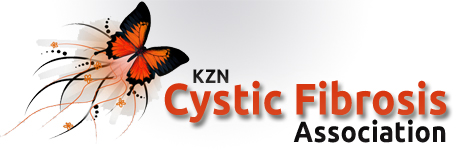Gastrointestinal problems
Abdominal paid & persisting bowel symptoms
Abdominal symptoms in CF may be acute, chronic, recurrent or obstructive. Ongoing bowel symptoms have many causes, making accurate diagnosis difficult at
times. They may be due to
- constipation/faecal loading,
- the distal intestinal obstruction syndrome (DIOS - a situation specific to CF),
- intussusception,
- malrotation,
- giardiasis,
- gallstones,
- appendicitis,
- colonic stricture,
- pseudomembranous colitis, or
- inflammatory bowel disease.
Distal intestinal obstruction syndrome (DIOS)
Contributory factors:
- Poor adherence to and/or insufficient pancreatic enzyme supplementation.
- Insufficient fluid and water intake.
- Low fibre intake.
abdominal pain associated in many but not all cases with symptoms (vomiting, constipation) and signs (abdominal distension) of intestinal obstruction. Anorexia
may also be a consequence. Often a right lower quadrant abdominal mass is felt. Faecal masses may also be felt elsewhere in the abdomen.
Management:
- Optimise diet, enzymes, fluid and fibre intake.
- X-ray abdomen to determine degree of faecal loading.
- Clear the bowel with: a) Gastrografin® mixed with fruit juice; or b) balanced electrolyte polyethylene glycol solution (Pegicol®, Kleen-Prep®, Golytely®). Gastrografin® is the preparation of choice in severe cases. N-acetyl cysteine (Parvolex®) may be added by mouth.
- If acutely obstructed admit, keep nil per mouth (NPM), improve hydration and use Gastrografin®, Kleen-Prep®, Pegicol® or Golytely®. If the obstruction persists, surgery may be required (uncommon).
Hyperacidity/Dyspepsia
Hyperacidity (with decreased bicarbonate secretions) with epigastric pain may respond to the introduction of an H2 receptor blocker or proton pump inhibitors.
Gastro-oesophageal Reflux Disease (GORD)
The incidence of GORD is significantly increased in CF patients of all ages. Factors playing a role are lower airway obstruction with flattening of the diaphragm, increased negative intra-thoracic pressure with inspiration, increased intraabdominal positive pressure during coughing and also delayed gastric emptying.
As the signs and symptoms of GORD are perfectly mimicked by the traditional symptoms of CF, making a definitive diagnosis is difficult. GORD should be considered in any CF patient who, despite compliance with CF therapy, continues to have problems with progressive pulmonary disease, vomiting, abdominal pain or failure to thrive. A high index of awareness is essential.
Investigations may include a barium swallow which gives good structural differentiation but the presence or absence of GOR may be over called or missed. Milk scans (scintigraphy) are more physiological and more informative but are only available at a few of the big centres. The same applies to oesophageal pH monitoring. If complications of severe oesophagitis such as stricture or bleeding are suspected, endoscopy is the definitive diagnostic test.
Posture, head of bed elevation and thickened feeds have little effect on GORD. There are no pro-kinetic agents available that do not have medico-legal implications. The use of Cisapride must be limited to children with a normal ECG and who are not on medications such as azithromycin or anti- fungals. Acid suppression with omeprazole remains the most effective therapeutic option. Current experience with long term use of omeprazole in young children has revealed few problems but the potential increase in infections remains a worry.
Surgical intervention with a Nissen fundoplication has a much greater failure rate and breakdown in CF patients, most likely due to the recurrent stresses of coughing, but should be considered in severe case and when PEG feeding is being considered.
Liver Disease
Significant liver disease occurs in about 10% of people with CF. A larger proportion (27-35%) have abnormalities of liver function or other evidence of liver involvement. An increased incidence of gallstones and cholecystitis is noted in older CF patients. Severe liver disease has a negative effect on lung health in CF and therefore liver involvement must be sought. Liver function tests should be done annually on all CF patients. If these are abnormal or if the liver is palpable, an ultrasound test is required. Early liver disease requires treatment with bile acids as these seems to slow progression of CF-related liver disease.
Of the 10% of patients with significant liver disease, a large proportion will have hepatic cirrhosis with portal hypertension. Severe liver failure is uncommon. Most
problems are associated with portal hypertension (bleeding varices, hypersplenism etc.).
Diagnosis is made based on clinical features such as a palpable liver, abnormal liver function tests (part of the annual review tests. See page *), or ultrasound
features. It is important to consider causes of liver disease not directly related to CF such as drug toxicity and infections.
Management:
-
All patients with persistently abnormal liver function tests or early liver disease on ultrasound scanning should receive ursodeoxycholic acid (20mg/kg/day) in 2 or 3 divided doses. This is now part of routine care for CF-related liver disease worldwide.
-
Fat-soluble vitamin supplementation is required (see dosages in Appendix 8)
-
Annual liver function and ultrasound are recommended for those with early liver disease
-
Bleeding oesophageal varices should be sclerosed endoscopically or banded when appropriate.
-
Liver transplant may be indicated in a few cases.

